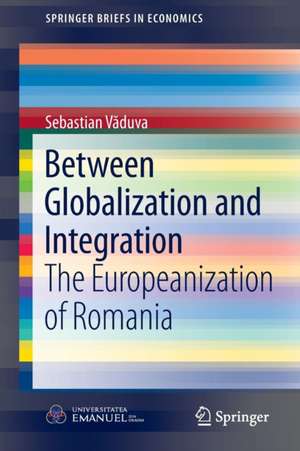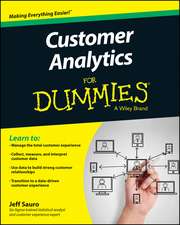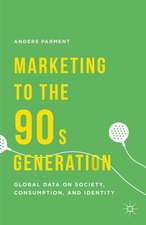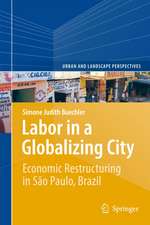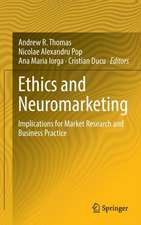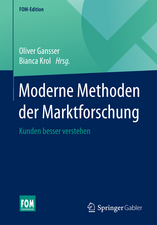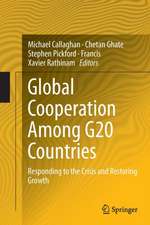Between Globalization and Integration: The Europeanization of Romania: SpringerBriefs in Economics
Autor Sebastian Vaduvaen Limba Engleză Paperback – 2 mar 2016
The first section reviews current perspectives on globalization and its impact in the late 20th century. It has “flattened” the Earth, generating better communication and exchanges than ever before, but also gathering a fair amount of criticismsfrom commentators seeing it as little else than neo-colonialism. Cooperative-administrative strategies are being suggested instead, in order for new public administration patterns to smoothly run in coordination with the globalized world.
In the second section, the European Union is described as a complex multi-level socio-political entity, itself historically in turmoil over its own style of rule – e.g. hierarchy vs. coordination, integration vs. centralization, etc. – or even its own existence, as the European dream seemed to be losing steam with the general population of Europe several times in the previous century. Powers and responsibilities of the European institutions and agencies are also discussed.
Thirdly, the recent history of Romania is approached from the Europeanization context, starting from its post-1989 days of confusion and of attempting to jumpstart democracy. Eventually, it has to undergo a series of reforms and internalize some principles fundamental to the EU in order for the much-awaited accession to occur and its multiple effects to start taking place.
A country with a rich cultural heritage and straddling multiple socio-political axes, Romania has plenty more to offer in the new geostrategic, security and development contexts of the 21st-century Europe. As such, this volume provides inspiration for further research and practical application opportunities on topics of local, European and global significance.
Din seria SpringerBriefs in Economics
-
 Preț: 444.35 lei
Preț: 444.35 lei -
 Preț: 264.79 lei
Preț: 264.79 lei - 15%
 Preț: 462.51 lei
Preț: 462.51 lei -
 Preț: 47.33 lei
Preț: 47.33 lei -
 Preț: 353.14 lei
Preț: 353.14 lei -
 Preț: 273.32 lei
Preț: 273.32 lei -
 Preț: 376.04 lei
Preț: 376.04 lei -
 Preț: 379.09 lei
Preț: 379.09 lei -
 Preț: 380.07 lei
Preț: 380.07 lei -
 Preț: 377.35 lei
Preț: 377.35 lei -
 Preț: 379.09 lei
Preț: 379.09 lei -
 Preț: 376.59 lei
Preț: 376.59 lei -
 Preț: 408.27 lei
Preț: 408.27 lei -
 Preț: 379.09 lei
Preț: 379.09 lei -
 Preț: 383.28 lei
Preț: 383.28 lei -
 Preț: 378.54 lei
Preț: 378.54 lei -
 Preț: 377.95 lei
Preț: 377.95 lei -
 Preț: 340.23 lei
Preț: 340.23 lei -
 Preț: 380.25 lei
Preț: 380.25 lei -
 Preț: 378.12 lei
Preț: 378.12 lei -
 Preț: 376.04 lei
Preț: 376.04 lei -
 Preț: 376.04 lei
Preț: 376.04 lei -
 Preț: 379.68 lei
Preț: 379.68 lei -
 Preț: 381.00 lei
Preț: 381.00 lei -
 Preț: 375.23 lei
Preț: 375.23 lei -
 Preț: 376.80 lei
Preț: 376.80 lei -
 Preț: 378.54 lei
Preț: 378.54 lei -
 Preț: 377.57 lei
Preț: 377.57 lei -
 Preț: 376.04 lei
Preț: 376.04 lei -
 Preț: 378.92 lei
Preț: 378.92 lei -
 Preț: 375.62 lei
Preț: 375.62 lei -
 Preț: 379.09 lei
Preț: 379.09 lei -
 Preț: 353.67 lei
Preț: 353.67 lei -
 Preț: 342.14 lei
Preț: 342.14 lei -
 Preț: 375.45 lei
Preț: 375.45 lei -
 Preț: 379.09 lei
Preț: 379.09 lei -
 Preț: 377.35 lei
Preț: 377.35 lei -
 Preț: 344.86 lei
Preț: 344.86 lei -
 Preț: 377.35 lei
Preț: 377.35 lei -
 Preț: 345.89 lei
Preț: 345.89 lei -
 Preț: 377.57 lei
Preț: 377.57 lei -
 Preț: 343.83 lei
Preț: 343.83 lei -
 Preț: 378.12 lei
Preț: 378.12 lei -
 Preț: 345.06 lei
Preț: 345.06 lei -
 Preț: 379.48 lei
Preț: 379.48 lei -
 Preț: 379.48 lei
Preț: 379.48 lei -
 Preț: 380.07 lei
Preț: 380.07 lei -
 Preț: 375.45 lei
Preț: 375.45 lei -
 Preț: 445.33 lei
Preț: 445.33 lei -
 Preț: 378.54 lei
Preț: 378.54 lei
Preț: 377.95 lei
Nou
Puncte Express: 567
Preț estimativ în valută:
72.33€ • 75.23$ • 59.71£
72.33€ • 75.23$ • 59.71£
Carte tipărită la comandă
Livrare economică 15-29 aprilie
Preluare comenzi: 021 569.72.76
Specificații
ISBN-13: 9783319270081
ISBN-10: 3319270087
Pagini: 102
Ilustrații: XII, 106 p. 2 illus., 1 illus. in color.
Dimensiuni: 155 x 235 x 6 mm
Greutate: 0.18 kg
Ediția:1st ed. 2016
Editura: Springer International Publishing
Colecția Springer
Seria SpringerBriefs in Economics
Locul publicării:Cham, Switzerland
ISBN-10: 3319270087
Pagini: 102
Ilustrații: XII, 106 p. 2 illus., 1 illus. in color.
Dimensiuni: 155 x 235 x 6 mm
Greutate: 0.18 kg
Ediția:1st ed. 2016
Editura: Springer International Publishing
Colecția Springer
Seria SpringerBriefs in Economics
Locul publicării:Cham, Switzerland
Public țintă
ResearchCuprins
Preface.- Chapter 1 The 21st Century and and the Expectations Placed upon Public Administration.- Chapter 2 The European Union: Amid Globalization and Integration.- Chapter 3 The Europeanization of Romania in the Globalization Context.
Notă biografică
Dr. Sebastian A. Văduva is the current Dean of the Griffiths School of Management at the Emanuel University in Oradea, Romania, as well as a management scholar with numerous active ties, academic and entrepreneurial, in both Europe and the United States. He has developed various seminars on leadership and effective management on both micro- and macro-economic levels and is behind several programs intended to boost Romanian economy by drawing in international investors and business partners.
Caracteristici
Explores the integration and globalization of Romania from economic, socio-political, developmental and administrative contexts Examines Romania’s progression from totalitarianism to democracy through several series of reform Approaches Romania’s recent history from a global context
